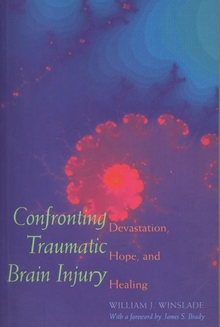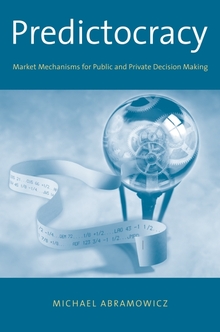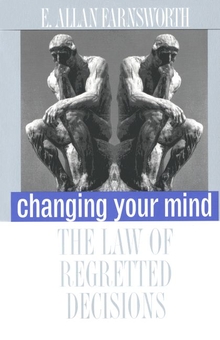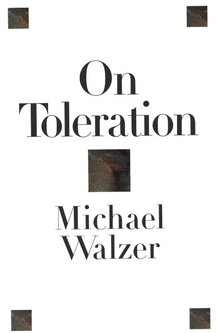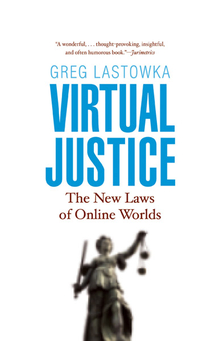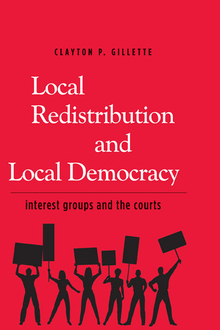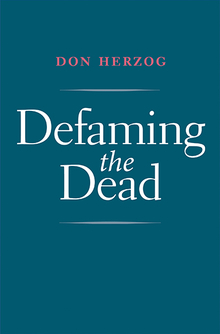Confronting Traumatic Brain Injury
WARNING
You are viewing an older version of the Yalebooks website. Please visit out new website with more updated information and a better user experience: https://www.yalebooks.com
Devastation, Hope, and Healing
William J. Winslade; With a Foreword by James S. Brady
William Winslade presents facts about traumatic brain injury; information about its financial and emotional costs to individuals, families, and society; and key ethical and policy issues. He illustrates each aspect with dramatic case studies, including his own childhood brain injury. He explains how the brain works and how severe injuries affect it, both immediately and over the long term, pointing out how resources are often squandered on patients with poor prognoses and adequate insurance, while underinsured patients with better prognoses do not receive appropriate care. He tells about the lack of regulation in the rehabilitation industry and what federal and state legislatures are doing to correct the situation. And he offers recommendations for policy changes to lower the instances of traumatic brain injury (such as raising the minimum driving age) as well as practical steps that individuals can take to protect themselves from brain trauma.
A selection of the Nurse's Book Service and Newbridge Communication Inc
"Professor Winslade has performed an invaluable service in making a lucid and cogent case for addressing the tragedy of traumatic brain injury. His call for increased efforts at prevention as well as reform in the care of those who have suffered brain injuries is eloquent and timely. Winslade succeeds in depicting the toll that brain injury takes on individuals, families and our national resources and the sense and wisdom of his ideas about what we need to do to diminish that toll is evident on every page of this important book."—Arthur Caplan, Trustee Professor of Bioethics at the University of Pennsylvania
"An excellent overview of the causes and prevention of head injury. It makes a good case for the fact that public policy on prevention is woefully inadequate."—Brent Masel, M.D., President and CEO, Transitional Learning Community at Galveston
"Traumatic brain injury is something that can happen to any of us, and something that happens to many of us. Remarkably little is known or understood by the public, and even many professionals, about such injuries. Winslade has done a splendid job in bringing those issues to the surface, laying out the general terrain, and providing many valuable and interesting insights into the problem. A useful and valuable book."—Daniel Callahan, Director of International Programs, The Hastings Center
"An unusual and provoking look at the perplexing problem of brain injury. From case stories on a personal level, to science on another level, every aspect of brain injury is explored. A must-read for policy makers, for those involved in brain injury—families, professionals and persons with a brain injury."—George A Zitnay, President and CEO, Brain Injury Association
"A must-read. . . . Brain injury should be a topic of concern for all Americans, and Dr. Winslade's book makes great strides in achieving this goal."—James S. Brady, from the Foreword
"This is a passionate book filled with the stories of a thoughtful narrator, the arguments of a strong advocate and the analyses of a scholar committed to notions of fairness and equity. Dr. Winslade takes the event of brain trauma nd exposes the need for prevention and the injustice of current policy."—Nancy Neveloff Dubler, LL.B., Director, Division of Bioethics, Montefiore Medical Center and Professor of Bioethics, Albert Einstein College of Medicine
"Winslade's insightful approach to this silent epidemic and his framing of disorders in their philosophical, economic and social context makes this a significant contribution to researchers, practitioners, families and policymakers."—Antonio E. Puente, American Scientist
"A book that may provoke considerable discussion."—Booklist
"By interweaving real-life accounts, research findings, and information on functional and structural neuroanatomy, the author vividly conveys the impact of TBI on the victim’s body and psyche, as well as on the family and society as a whole. Written in clear and accessible language, this volume will bridge the awareness gap that currently exists about TBI for both interested lay persons and professionals. In so doing, the author breaks the silence surrounding this epidemic."—Lisa Lewis, Bulletin of the Menninger Clinic
"William Winslade has spent most of his professional life trying to get people to use their brains. Now he wants to get the public to protect them…He is passionate on the subject." —Ruth SoRelle, Houston Chronicle
"Dr. Winslade's little book on traumatic brain injury should have a big impact on those who need the information most—survivors of TBI, family members and loved ones of persons who have experienced TBI, disability rights and consumer advocates, policymakers, and legislators. In slightly over 200 pages of reader-friendly text, he brings to life the complicated experience of brain trauma and recovery with powerful examples from the lives of people who have experienced its devastating effects. He also presents compelling arguments for changes in policy and laws that affect injury prevention and treatment. . . . This is the book rehabilitation professionals should give to people who have survived brain injury and to their families when they need help in understanding what has happened. This is the book we should recommend to advocates who want to know, 'What should I do now to advance the cause of TBI?' This is the book we should ask legislators and policymakers to review before passing laws and writing administrative policies that impact brain injury treatment, rehabilitation, and prevention. This is the book that we should recommend to the general public to better understand the scope and consequences of the brain injury epidemic. In short, Confronting Traumatic Brain Injury should be on the bookshelves of all rehabilitation professionals so that they can share it with those who need to get the 'big picture' of the causes, consequences, and costs of TBI."—Mary Ellen Young, Journal of Head Trauma Rehabilitation
"It is a measure of just how far research has come over the past two decades that Winslade has been able to put together a book of this substance on different aspects of traumatic brain injury. Very well written, interesting, thorough, and accessible; this book would useful for patients, families, the general public, and clinicians. . . . From case studies to psychological and prognostic implications, the information in this compendious survey will benefit all health care professionals who care for patients with TBI, and TBI patients themselves. I believe that it should be read by anyone involved in the management of the patients with TBI, including families."—Facundo Manes, Journal of Nervous Mental Disorders
"Winslade has written a readable and broad overview of head injury: causes, treatment, rehabilitation, and health and public policy implications."—Library Journal
"[A] powerful book."—Robin Marantz Henig, New York Times Book Review
"Winslade . . . captures our attention by making it clear that the horror stories he relates can just as easily cleave our own lives—or the life of someone we love—indelibly into before and after."—Robin Marantz Henig, New York Times Book Review
Publication Date: November 10, 1999

